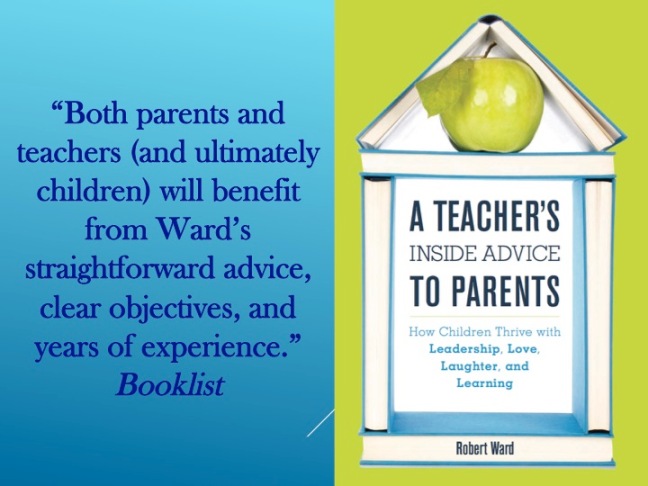If you count yourself among those parents and teachers who have within their midst kids who are naturally self-motivated, congratulations! Whatever you are doing is working, especially on children who just do not to seem to need that much work.
Since there must be underlying reasons why some kids thrive, sometimes seemingly all on their own, and others do not, the following questions are worth asking:
Can you actually identify the core qualities of highly effective parents and teachers?
More to the point, what are the specific attributes every adult should cultivate in kids?
Can you also name the precise ways you would know that a child is flourishing and feeling fulfilled?
The Kids Who Require A Lot of Work
Of course, if you are among those parents or teachers who daily strive to positively influence, say, currently rebellious, reluctant, or retreating children—especially a family room or classroom filled with youngsters who are a challenge to motivate—you likely have already pondered these questions.
You well know how much concerted effort the job of nurturing and educating children really entails. You also know that whether congratulation, compassion, or commiseration is in order for you largely depends on the elusive alchemy that exists between an adult’s intention and a child’s cooperation.
Because successfully rearing and teaching children is never a one-sided affair, those who truly see the big picture are never quick to judge either party, neither adult nor child, neither parent nor teacher. We all know that appropriately shepherding and setting free a child’s heart, hopes, mind, and manners can be daunting at times, even in the best of circumstances. Yet it can (and must) be done.
Leadership, Love, Laughter, and Learning are the Answers
And it will be done so much more pleasantly and productively when parents and teachers work together as allies in education using four common approaches. Since all children require assistance in social, emotional, soulful, and academic development, that common means is found through providing each child with a consistent balance of adult leadership, love, laughter, and learning.
At home and at school, the goals of parents and teachers are as similar as they are sound and are as universal as they are essential: Every child must progressively acquire self-control, self-confidence, self-expression, and self-efficacy. All four elements are equally important and inextricably intertwined. Take as example any successful and satisfied person, and their conquest and contentment can be traced back to a powerful combination of all four of these fundamental necessities.
All Children Need Intentional Adult Leadership
Now, if you are one of those fortunate adults, blessed with their seemingly perfect children or students, you too must use these same four approaches in order to ensure continued advantageous outcomes, even with kids who seem to automatically cooperate, communicate, invest, and achieve.
The fact is, every adult who cares for and who cares about kids must have clear answers to all of the previous questions and use that wisdom as their reliable touchstone to guide and gauge their ongoing interactions with children.
The parent or teacher who leaves it all up to chance or up to the kids themselves, even with these naturally “good” children, will inevitably be in for a surprise. One thing certain about children is they are unpredictable and are capable of large swings in behavior and attitude.
A Child’s Capacity for Change
In a single school year, teachers sometimes see marked changes in students, both for the better and for the worse. Every parent can also attest to these same kinds of dramatic, often inexplicable shifts. This proves just how fragile and vulnerable kids are and therefore how much they need strong adult leadership.
Furthermore, children need consistent monitoring so we can catch them before they fall too far. This has nothing to do with pampering, overprotecting, or prying; this is the proper use of an adult’s active attention and intentional intervention before a true crisis takes root.
At the same time, this propensity for a child’s swift and striking change also proves how malleable kids really are and how impressionable they are to external influences, both positive and negative. While in one respect the easy susceptibility of your children may keep you awake at night, this should also come as good news to parents and teachers who must realize that in every child there always resides a great capacity for improvement.
Even though they will not tell you so, it is as if kids are just waiting for us to mold them into the responsible yet independent, industrious yet creative, young adults we pray they will turn out to be. With this fundamental fact in mind, parents and teachers should be eager to exercise their tremendous power to motivate, inspire, and sway children because their impact will be profound and lasting.
Moreover, we do not have to wait, wonder, or worry how kids will “turn out.” Instead, we can actually do our jobs as persuasive parents and teachers and then, more often than not, remain sure and proud of the results.
The Benefits of Consistency and Balance
Therefore, there is much a parent and teacher can do to mitigate any sudden, troubling changes in children, as well as to capitalize on any changes for the better. In fact, the equilibrium that this leadership, love, laughter, and learning approach provides to parents smooths out much of the rough edges—if not circumvents many of them altogether—and leaves parents with the confidence and calm in knowing that they are indeed giving their children exactly what they need.
In addition, this parental assurance also feeds directly into their children’s sense of security and fulfillment. This way, kids have no reason to rebel, withdraw, or retreat in the first place—and if they do, it certainly will not be for very long or quite as severely.
In both the little and big ways, children should never be expected to parent or educate themselves. Kids must be taught responsibility, self-regulation, self-reliance, and self-direction in increasing, developmentally appropriate measure, but parents and teachers must also fully assume their roles as mentors and muses for all children. Kids pay too great a price for adult inconsistency, inattention, and abandonment.
At the same time, balance is crucial. All extremes in parenting and teaching are to be avoided. We want to actively and strategically nurture and direct all children towards increasing autonomy and independence. We neither want to merely hope for the best and essentially allow kids to fend for themselves, nor should we orchestrate their every move and indulge their every impulse or urge.
Especially for all those currently unmotivated, seemingly indifferent children who we absolutely adore yet are absolutely stuck with, the persuasion must come from the adults first. For whatever reasons, these kids do not inwardly possess the drive or the will to do more than the bare minimum, if that, in regards to what their parents and teachers require of them—unless it happens to be something the children themselves also want in that particular moment.
Thus, the adults in these most challenging kids’ lives must without hesitation step up to be the prime and powerful motivators these children require—before they turn us prematurely grey and before their bad attitudes and bad choices become bad habits! And since we are all essentially stuck with each other—parents, teachers, and children alike—we should all stick together and stick with a cohesive plan of leadership, love, laughter, and learning that is guaranteed to work wonders.
***
In the comments section below, please share the specific ways you provide leadership or love or laughter or learning (or any combination of the Four Ls) for your children or students. If parents and teachers are to truly join as allies in education, we need to keep this conversation going and to share our successes, struggles, and suggestions.

This article is adapted from Chapter 1: Motivation is Always the Answer in A Teacher’s Inside Advice to Parents: How Children Thrive with Leadership, Love, Laughter, and Learning by Robert Ward.

This article is also recommended by the Childhood Domestic Violence Assoc.








I couldn’t agree more that children need intentional adult leadership. There is also a need for balance in that leadership: not so much that the child becomes unable to do for themselves, not so little that the child is presented with dangerous choices (s)he doesn’t know how to handle. I was talking to a colleague about this yesterday: in primary we often deal with kids who have been given almost no choices. When we set up choices they can make in the classroom, we need to make sure, at first at least, that there are no seriously unsafe answers. Because when first learning how to choose, the child needs to be able to make mistakes. Later, life itself will give them choices with more harsh consequences. Setting up these choices — like choosing independent word work with a self-checking component — gets them ready for bigger choices.
LikeLiked by 1 person
Robert, I have always appreciated the “Kids who require a lot of work” because as a teacher, it seemed I gravitated towards that type of student; perhaps because I felt they needed me and their eventual understanding, sometimes hard fought, seemed more genuine and true.
LikeLiked by 1 person
Peg, I really appreciate your comment because I know exactly where you are coming from. I always choose to teach the most “difficult” students for the same reasons as you– and for the same outcomes. Approached correctly and consistently, these challenged and challenging kids show the most growth, and I gain the most gratification from their progress, enthusiasm, and shining brilliance!
LikeLike
LikeLike
LikeLike
LikeLike
LikeLike
LikeLike
LikeLike